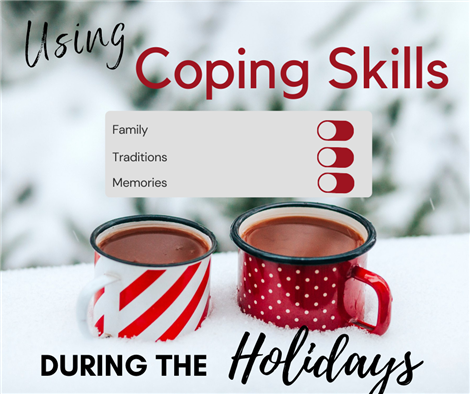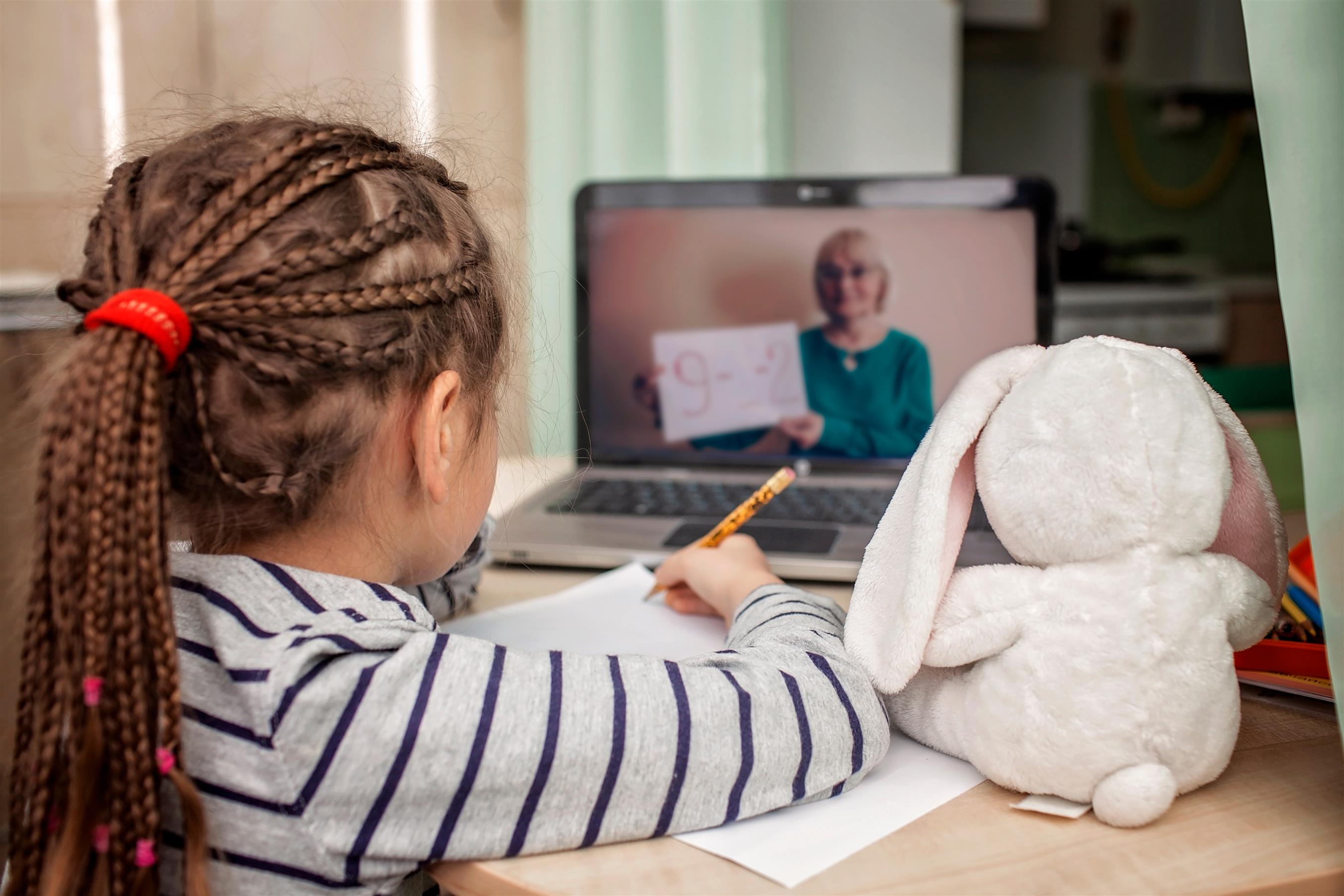Using Coping Skills During The Holidays
It is that time of year again. That time when we are always on the go with holiday traditions and the time where we begin to stress out for multiple different reasons. Who is cooking for Thanksgiving? We have to visit both sides of the family this holiday season-- how am I going to do that? Do we even like the family coming over for the holidays? Where are we going for New Years? Finances are tight, how am I going to buy everyone gifts?
Does this sound familiar? Sounds stressful right? As adults, we are used to having to deal with stressful situations every single day. No, we do not like to deal with them, but we have the coping skills necessary to handle these scenarios.
I also tend to think of the students who have lost a mother, father, or caregiver. Or maybe their parents have recently gone through a divorce so this is the first Christmas of having to celebrate in a split family. We often think of these things as big "T" trauma. What about the students who experience little "t" trauma like the ones that have moved to a new area and they don't have new friends to help celebrate the holidays with. Maybe they have moved too far away from their family to get to go home for the holidays?
Just like adults, children experience stressors as well. The difference is, they may not have the coping skills to handle these situations. As adults, it is our job to help our children and students learn these skills.
Today we will be looking at what a coping skill is, the importance of coping, and some ways to teach children coping skills. At the end, there will also be a link to a resource you can use with your child or in your classroom so be sure to check it out!
What is a coping skill?
A coping skill is anything we can do in the moment of a stressor to help us regulate our emotions and feel less stressed. These skills help us get through stressful situations and a little more at ease.
There are a variety of different coping skills that can take place but typically, they fall under one of these categories
Self Soothing - this can also be seen as relaxation. It is what you do to help yourself calm down. It can be journaling, deep breathing, taking a warm bath, stretching, and the list can go on. The key to this coping strategy is that you are soothing yourself and embracing the feeling of stress and finding a way to subside it.
Distraction- this is when you distract yourself so you forget about the stressor. Some examples are working out, cleaning, working, drawing, and the list goes on. Oftentimes, this coping strategy has to do with something physical that draws attention off of the stressor itself.
Emotional Regulation- this coping skill is hard to master but one that is very important, specially in children. This allows your to express your feelings in a safe way and allows you to feel your emotions and channel them. Some examples are journaling what you are feeling, drawling how you are feeling, talking your feelings out, etc.
Mindfulness- This helps yourself and children focus on the present instead of stressing and worrying about the future. This could be meditation, controlled breathing, 5-4-3-2-1 technique, and even sensory play.
Why is coping important in children?
Children do not know how to manage their emotions effectively. Even as adults, we need to practice and we are not always the best at doing so. Coping skills give children healthy ways to manage the emotions they are feeling in their everyday life and help them become more independent.
Kids will get upset. Unfortunately that is part of growing up; however, we can help children in the process. All too often we see children express their frustrations in a negative way. They may yell, scream, throw things, and sometimes even use physical violence. We often label these children as “problem kids” and expect outburst; but, in reality these children lack coping skills and need help in learning these. Once they have a better understanding on how to positively control their emotions, these outbursts will be far and few between. Not only that, but you will see an increase in their academics because they will be able to focus more on their work.
How can we teach our children to cope?
There are plenty of different strategies we can use to teach children coping skills but the key is to be patient and to remember that every child is different so you may have to try different techniques until you determine what is best for that specific child. Here is a guideline of what you can do.
Help identify feelings- Children experience so many different emotions. It can be hard for them to pinpoint exactly what they are feeling! Help them-- guide them in how they are feeling by asking questions such as:
Describe how you are feeling right now.
Is something bothering you?
What could make you feel better right now?
Talk through what emotions they are going through- This goes hand in hand with the point above. After children identify their emotions, have them describe what they are feeling and talk about why they are feeling that way. This helps children learn why they are feeling the way they are.
Try new skills- Keep trying new ideas with your children. Have them do deep breathing; talk about with your child how it made them feel and then next time try a different technique. Not only are you discovering coping skills that works for them, but they are learning what skills to use during each situation.
Practice- Practice these new skills and practice with your child on how to identify emotions. To help we have a resource called “Reindeer Games”. This is a great way to practice identifying emotions, and identifying some coping skills you can use to handle the situation. It also is a great way to start a conversation with your child or students.
All in all, we all experience stress; but children need to learn how to develop coping skills. As adults, it is our job to assist them! I truly hope this article and resource is helpful! What is your favorite coping technique?






.png)